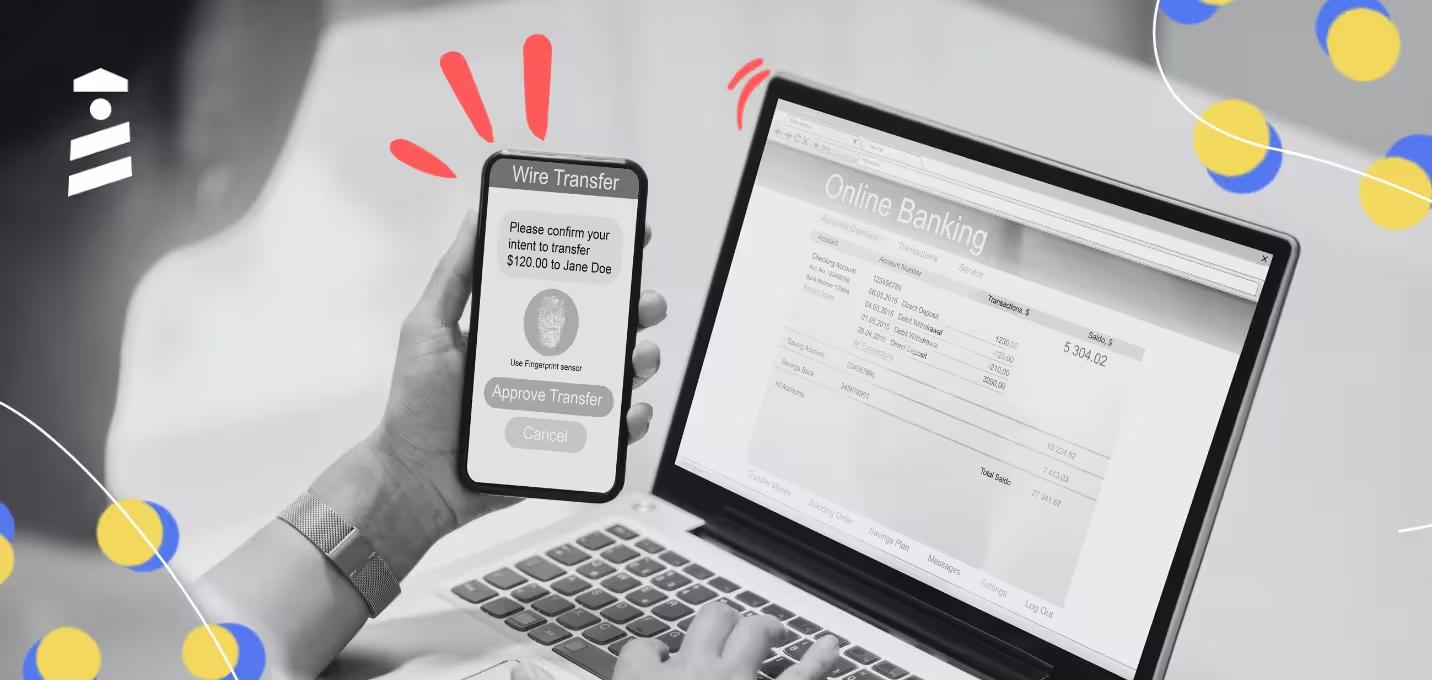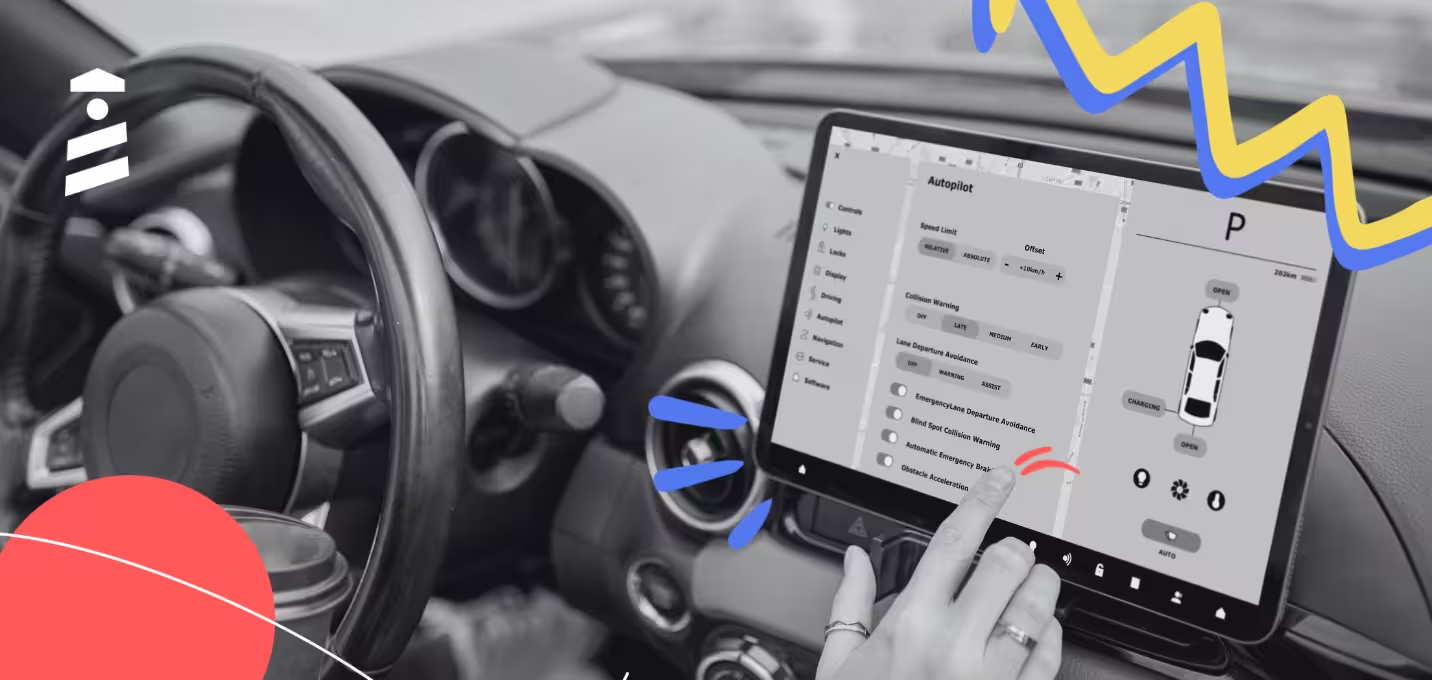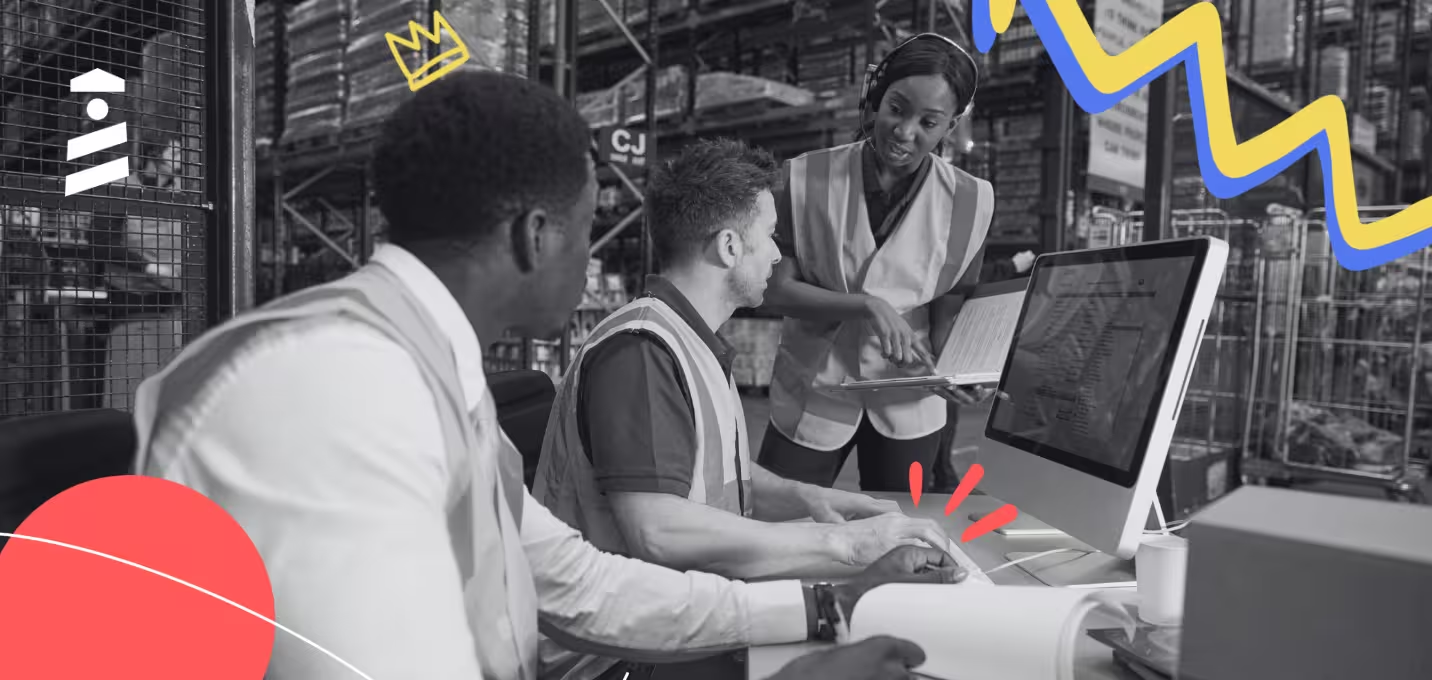

I remember my first job interview; I was incredibly stressed.
All those questions on my mind: what are they gonna ask? Should I ask questions too? How long/explanatory should my answers be?
"I need to speak slowly and calmly..."
I remember my second and third interviews too, but nothing changed much.
Afterward, I came to the conclusion that interviewing for a job is stressful for anyone, anytime -well, I hoped so, at least.
But then it cannot be any easier to interview someone for a position too.
There's a limited time and tens of questions to ask. You shouldn't skip any important one, as it could harm not only the team and business but also your customers and partners. Yet, again, you shouldn't lose much time with the clichés and things you can learn from CVs...
Such a big responsibility!
But no need to freak out; I searched and looked for the most important interview questions to ask potential Customer Success Managers (CSMs) the top companies ask nowadays.
If you're considering applying for a job as a Customer Success Manager or interviewing candidates for the position, I've got your back, my friend.
When you're ready 🏃♀️🏃♀️
TL;DR - The Most Important 10 Questions to Ask Before Hiring a CSM
👉 How do you define the role of a customer success manager and how do you think their addition could benefit our business?
👉 Are there any changes or additions you would suggest for our company's culture or values?
👉 In your opinion, what is the most crucial element in establishing long-term customer relationships?
👉 Tell me about a situation in which you had to change your usual approach to deal with an issue.
👉 Can you describe a typical workday you experienced in your previous role?
👉 Reflecting on your previous leadership role, what was the most important lesson you learned from that experience?
👉 Can you explain how you plan to work together with the sales teams and product teams as a customer success manager?
👉 As the customer success manager, what will be your primary strategy to prevent customer churn?
👉 Tell me about a time when you lost a customer. How did you feel, and what actions did you take in response?
👉 How do you adjust your strategies to meet the specific needs of customers from different industries?
Company and Product Overview
1. Can you provide a brief and compelling overview of our product/services?
It's vital that an interviewee has done their research and spent some time trying out your product, as it shows enthusiasm and excitement about the position -as well as respect for the company.
The ideal candidate would be able to list the sell points of your product and explain how a particular product feature works.
2. How do you define the role of a customer success manager, and how do you think their addition could benefit our business?
Having years of experience working as a customer success manager in the SaaS industry does not always ensure that a candidate will contribute to the success of your organization. Or, just because someone is new to the job and the industry doesn't necessarily mean that they are unsuitable for the role.
What's important is that the candidate's definition of the role of a CSM matches up with yours and that they have a clear vision both about the importance of the position and the responsibilities it brings.
3. Would you suggest any changes or additions to our company's culture or values?
It would be best if you didn't forget that the role of a customer success manager does not only about customer satisfaction and success but also about leading a team, influencing people, and working closely with other teams and managers, such as the product managers.
Thus, during the interview process, you should make sure that you're on the same page about the company's values of accessibility, inclusivity, etc.
In fact, hiring someone who doesn't align with your values can be even more detrimental to your organization than bringing on a CSM who needs some guidance in understanding your company's vision and long-term goals.
Success Strategies and Customer Relations
4. In your opinion, what is the most crucial element in establishing long-term customer relationships?

There is no single correct approach to customer relationships or user engagement, as everyone may have their own distinct opinions and strategies to improve them.
While there is no definitive answer to this question, it is beneficial to explore what the person has acquired from their prior experiences and what they can bring to the table.
5. Can you share an experience when you were assigned to work with a dissatisfied customer?
Customer success management primarily involves communication, empathy, problem-solving, and crisis management.
And this question is your litmus paper, my friend. Ask for their approach to the situation and the steps they took to improve the customer's experience.
A strong candidate will likely describe a situation where they actively listened to the customer, understood their concerns, and appropriately addressed the problem. They may also share how they followed up with the customer to ensure their satisfaction. On the other hand, a weaker candidate may struggle to provide a specific example or demonstrate a lack of empathy toward the customer.
6. If a customer demanded a solution that was not possible, how would you handle the situation?
Every job has its challenges; CSM roles have too.
Sometimes, customers may make requests that simply cannot be fulfilled and ask for solutions that are not available.
However, a skilled CSM can navigate such situations by identifying alternative solutions, actively listening and understanding the customer's needs, and working towards their satisfaction. In doing so, the CSM may still be able to keep the customer content and happy with the alternative solutions provided.
The ideal candidate should be someone who can stay calm and think quickly in such situations. Here it is again: excellent crisis management skills.
7. Tell me about a situation in which you had to change your usual approach to deal with an issue?
To ensure customer success and happiness, you must be willing to go the extra mile and change your usual approach.
Well, maybe not you personally, but certainly your customer success manager.
I'm not saying a CSM must be available 24/7 or they must take a customer's kid from swimming classes, of course. Yet, sometimes they might need to show how to use 3rd party apps or how to integrate a specific tool with another, even though the issue is not related to your product.
8. If you don't know the answer to a customer's question, how would you respond to the issue?
No one can have all the answers to all the questions.
It's no problem.
Learn how your candidate would handle the process in such a case.
A good CSM would acknowledge the question and inform the customer that they need to investigate further to provide an answer. It's important for the CSM to be transparent with the customer and avoid providing inaccurate information.
The primary objective is to keep the customer engaged through proactive communication while displaying a commitment to finding solutions.
9. How do you modify your success strategies based on various revenue models?
Research shows that $62B is lost each year due to bad customer experiences.
Even this number shows the importance -and impact- of a successful customer success management strategy.
Yet, there's no one-fits-all strategy when it comes to customer success management. Therefore, you must go with a candidate who understands different business and revenue models, what they necessitate, and who can adapt their plans/strategies accordingly.
Who reads and researches a lot, maybe?
In other words, look for a flexible and diverse range of strategies.
10. What methods do you use to gather customer feedback?
One of the critical responsibilities of a CSM is to gather feedback and insights from customers about their user experiences and deliver the key notes to other teams.
Ask the candidate to walk you through their feedback-gathering and evaluation processes.
Prioritization and Task Management
11. How do you manage and prioritize your tasks when you have multiple projects to work on simultaneously?
While the ideal number of accounts for a Customer Success Manager (CSM) to manage is typically around 20-25, in practice, a CSM working in enterprises has to handle about 50 accounts simultaneously on average.
That's why it is crucial to discuss the candidate's project and time management strategies before proceeding with the hiring process.
The ideal candidate would be able to assess the requirements, project deadlines & milestones; and prioritize accordingly.
12. Can you describe a typical workday you experienced in your previous role?
Do you want to find out more about how your candidate likes to work, what they consider important, and their overall experience in their previous or current role?
This question is for you, then 🎉
By learning about a typical workday in someone's life, you can see:
✅ If the candidate is familiar with the responsibilities the position entails.
✅ If the candidate can handle the tasks the role necessitates.
✅ If the candidate can prioritize their tasks and manage due dates effectively.
✅ If the candidate can coordinate and work with different teams -a.k.a. if they're a team player.
13. Reflecting on your previous leadership role, what would you say was the most significant lesson you learned from that experience?
No one is born a great customer success manager -actually, any kind of manager.
Everyone continues on their way by adding what they have learned from the work they do and the relationships they have established into their pockets, which also means that leadership skills -generally all soft skills- are learned and developed over time.
The lesson that someone learns from a particular position can reveal a great deal about their perspective and mindset, offering insights into their ability to learn from experience and adjust to changing circumstances.
⚡ Seek someone who is willing to learn and grow and who is open about their progress. This includes individuals who acknowledge that they developed their skills and expertise over time and who strive for further personal and professional growth.
14. Can you explain how you plan to work together with the sales teams and product teams as a customer success manager?

Customer success management is not a job that can be tackled alone.
A successful Customer Success Manager (CSM) would know that they need a team, actually, that they need all the teams within the company to ensure the satisfaction and happiness of a customer.
Ask your potential CSMs how they're planning to collaborate with the product team to improve certain product features and ensure that customer expectations are met.
Additionally, you could ask about their strategies for receiving support from other teams or team members when dealing with difficult customers.
You can ask extra follow-up questions related to the topic, such as the most effective strategies to collaborate with different teams.
Customer Retention and Churn Prevention
15. As the customer success manager, what will be your main strategy to prevent customer churn?
According to Gainsight's report, reducing revenue churn (83%) and improving product adoption (%81) are the top priorities of customer success managers.
As the hiring manager, it's your responsibility to ensure that the candidate understands the customer's needs and knows how to address potential issues, preferably even before they emerge.
16. How would you ensure that a customer showing signs of potential churn is retained?
The strategies implemented to retain customers who are at risk of churning are equally important as the general anti-churn strategies talked about above.
A good CSM would first investigate the reasons behind the customer's dissatisfaction or concerns, after which they would try to find solutions that would hopefully dissuade the customer from churning.
➡️ A follow-up question: Can you describe your process for identifying such customers?
17. Tell me about a time when you lost a customer. How did you feel, and what actions did you take in response?
Sometimes, it'll be the company receiving the bad news, not the customers.
Customers will churn; it happens.
What's important is that you have a Customer Success Manager (CSM) with high emotional intelligence and resilience, who can admit their mistakes and move forward.
A great CSM would NOT:
👉 Blame others for the bad news.
👉 Dwell on the issue unnecessarily and lose their work motivation.
Instead, they would:
👉 Analyze the situation and detect what went wrong.
👉 Learn from their failures and share their insights on the problem with their teammates.
18. How would you define "success" for a customer success manager?
While it's commonly accepted that the main goal of a customer success manager is to establish strong and long-term relationships with the customers by ensuring their success with the company's product/services, each company -and CSM, in this case- may have unique end goals that define "success" for them.
That's why it's crucial to make sure that the company goals and your candidate's goals align to achieve the "same success".
19. What tools/software do you use to monitor/improve customer success and satisfaction?
There are tens and hundreds of tools/software that are available to any job position, including customer success management.
A CSM must know certain tools/software in this age, right?
Here's a cheat sheet for you. Ask for these tools/software 👀
👉 HubSpot CRM -Check for alternatives!
👉 Zendesk
👉 SurveyMonkey
Adaptability and Communication
20. Describe a time when a customer's demands changed substantially. How did you adapt?
One of the key entailments of a customer success manager role is adaptability.
There are numerous reasons why a CSM might need to change its strategies and adapt to new circumstances. There might be changes in budget, causing delays in product release dates, or there might be changes in the competitive landscape and unexpected market disruptions. Or, simply, the customer may need to switch from the basic plan to the corporate plan, and you may need to make this transition very quickly -and very smoothly ofc.
A competent CSM would showcase their abilities to adapt to these changes and take action accordingly, such as communicating and collaborating with other teams.
21. How do you adjust your strategies to meet the specific needs of customers from different industries?
The aim of this type of question is to see how acquainted and familiar a candidate is with different industries/sectors. For example, if you have a product that tracks sales and creates a customer database, you can have customers from both the SaaS industry and the textile industry.
What makes someone a good customer success manager is their ability to employ different strategies to ensure the success of a customer. Sometimes it means having knowledge of different business and recurring revenue models, sometimes, it means understanding the specifics of a different marketplace.
If you want to have strong relationships with customers, you must make sure your CSM understands their company goals and needs, as well as the market conditions.
22. How do you address a customer's concerns in case of a misunderstanding/disinformation?

Anyone who has worked in any industry knows that the majority of misunderstandings arise from minor issues rather than major ones.
Sometimes a support article doesn't explain a concept clearly enough, sometimes the blog content is confusing, or maybe one of the sell points from a product demo is misheard.
What I'm saying is that customers might get confused or frustrated due to several reasons. An experienced CSM would handle these kinds of situations professionally and de-escalate these frustrated customers with their conflict resolution skills.
Here, it is vital to draw attention to the importance of communication skills/ soft skills once again.
Conclusion
There's an increasing demand for Customer Success Managers (CSM) in the market, and you want to find and employ the best before anyone else does, I understand. It's hard to improve product adoption, decrease churn rates, and build -and sustain- strong relationships with the customers; you need a real professional.
Or, who knows, maybe you're one of the future's best CSMs, who is looking for a job opportunity nowadays.
At one point or another, you'll ask -or answer- these interview questions if you want to ensure success ;)
Good luck with the interview!
Frequently Asked Questions
Although there is no single answer that can convince every recruiter from every company in every industry, you can impress many of them by addressing the following points in your answer: Demonstrating a deep understanding of not only the product but also the company values and goals. Providing examples that show the excellence of your communication and problem-solving skills from your prior experiences. Highlighting your industry knowledge. Sharing your experiences in customer data analysis and elaborating on how it’s valuable for developing unique and up-to-date strategies.
Although there is no single answer that can convince every recruiter from every company in every industry, you can impress many of them by addressing the following points in your answer:
- Demonstrating a deep understanding of not only the product but also the company values and goals.
- Providing examples that show the excellence of your communication and problem-solving skills from your prior experiences.
- Highlighting your industry knowledge.
Sharing your experiences in customer data analysis and elaborating on how it’s valuable for developing unique and up-to-date strategies.
What questions should I ask my customer success manager?
The main purpose of an interview should be to understand if a certain candidate is suitable for a customer success manager and open to potential professional development within their role by analyzing their strengths and capabilities.
You must ask questions about their previous/current roles, educational background, their leadership capabilities, soft skills/ hard skills, and industry-specific knowledge.
What are the top 3-5 priorities in customer success?
- Reduce revenue churn and increase recurring revenue.
- Improve product adoption.
- Build and sustain long-term relationships with customers.
- Increase renewals and upsells/cross-sells.
- Improve user experience -both for onboarding and post-use phases.















.svg)
.svg)
.svg)
.svg)
.svg)











.svg)
.svg)




.png)















